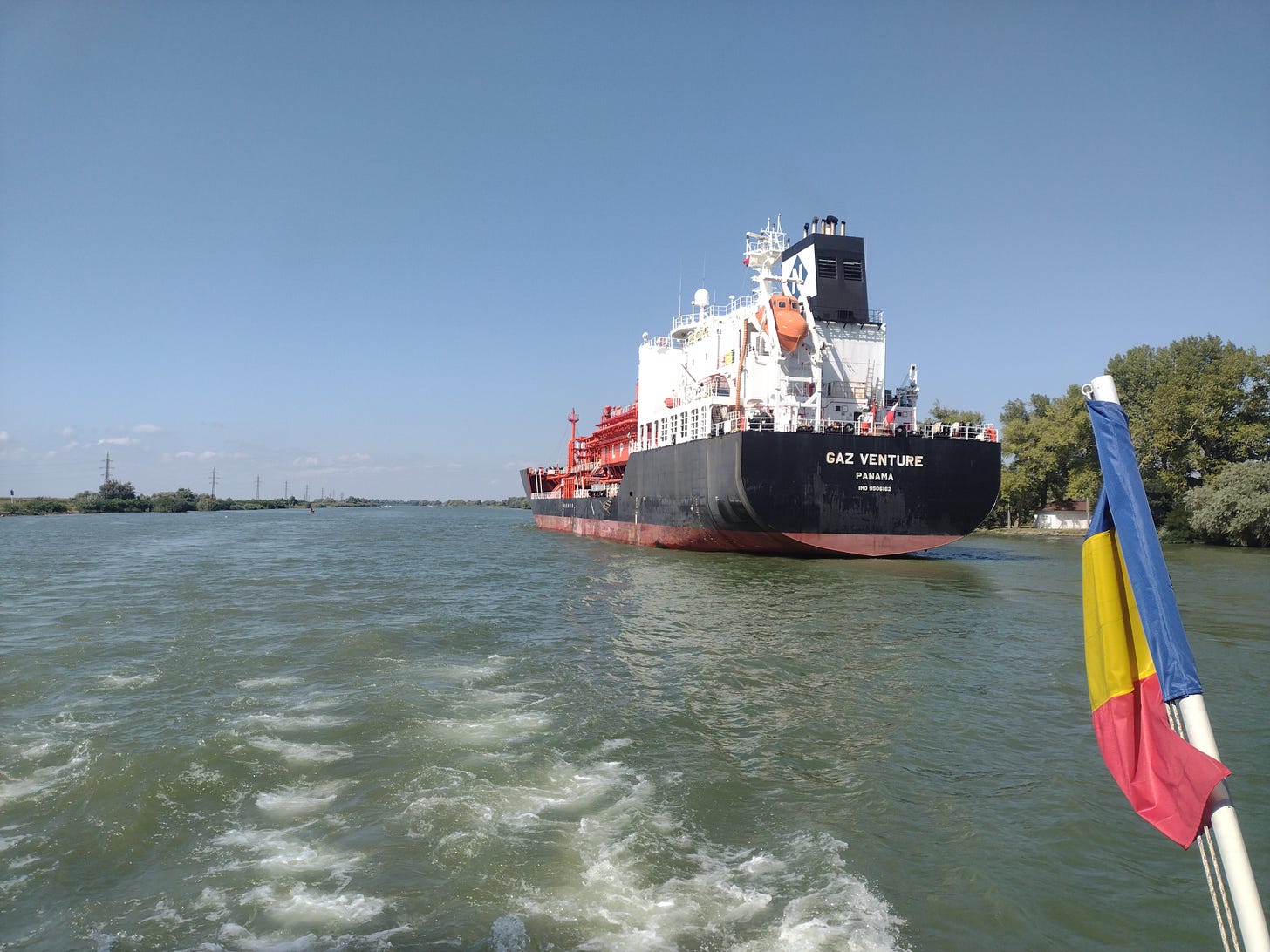How Moldova’s Port Can Support Ukraine’s Recovery
A Case for Unlocking the Danube’s Potential by Investing in Giurgiulești
Guest article by Michael Druckman, Managing Director, Trident Forward
The reconstruction of Ukraine’s ports along the Danube offers a rare opportunity to think beyond national borders and embrace a truly regional approach to transport and logistics development. Both Ukraine and Moldova hold Association Agreements with the European Union, signed in 2014, which created Deep and Comprehensive Free Trade Areas (DCFTAs) between the EU and each country. These agreements commit both nations to progressively align their regulatory frameworks with EU standards, including in the areas of customs procedures, transport infrastructure, and logistics services. This alignment opens up substantial opportunities for coordinated investment in Danube transport infrastructure, creating a harmonized regulatory environment that facilitates cross-border trade and multimodal transport.
Moreover, both countries were granted EU candidate status in 2023, further reinforcing the strategic importance of integrating their infrastructure into the broader Trans-European Transport Network (TEN-T). The Danube, as Europe’s second-longest river and a core transport corridor, represents a natural focal point for this integration. Giurgiulești, Moldova’s only port on the country’s 400 meters of Danubian coastline lies at the crossroads of the EU and Ukraine. Giurgiulesti’s development could serve as a pilot project for showcasing how improved port infrastructure, streamlined customs procedures, and digitized logistics systems can accelerate trade and reduce costs along the eastern edge of the EU.
The devastation wrought on Ukraine’s infrastructure has been staggering. Black Sea ports such as Mykolaiv and Odesa’s port complex have suffered extensive damage in addition to the damage wrought on the smaller Danube River ports of Izmail and Reni from frequent drone attacks. Reni is located just several hundred meters from the Moldova/Ukraine border and the port of Giurgiulesti.
As Ukraine looks to rebuild, there will be a strong emphasis not just on reconstruction, but on modernization and resilience. The Danube ports will undoubtedly play a key role in this process, especially in ensuring that Ukraine’s economy remains connected to global markets even if access to the Black Sea remains contested.
Including Giurgiulești in Ukraine’s port recovery planning would serve multiple purposes. First, it would create more capacity and resilience by diversifying the region’s port infrastructure. Second, it would foster deeper economic cooperation between Moldova and Ukraine, two countries whose futures are increasingly intertwined—not only due to shared wartime challenges but also through their mutual pursuit of EU membership. Lastly, it would send a powerful message to investors that Moldova, often overlooked in Ukraine’s post-war reconstruction planning, can play a key role in European supply chains.
For Moldova, the economic benefits would be considerable. Giurgiulești’s expansion and integration into the broader Danube logistics network could attract foreign investment, stimulate job creation, and enhance Moldova’s role as a regional transit hub. Improved port capacity and efficiency would benefit Moldovan exporters, particularly in the agricultural and manufacturing sectors, by lowering transport costs and improving access to EU and global markets. For Ukraine, leveraging Giurgiulești could ease some of the congestion and infrastructure constraints currently affecting Reni and Izmail, facilitating more efficient grain exports and other trade flows.
For European markets, a better-connected and modernized Danube corridor, encompassing Ukraine’s ports and Giurgiulești, would enhance supply chain reliability at a time when global trade disruptions have highlighted the vulnerabilities of over-concentrated transport routes. With the EU increasingly prioritizing food security, energy diversification, and resilient transport corridors, investing in the lower Danube’s infrastructure—including Moldova’s modest but vital Giurgiulești—would serve both strategic and economic objectives.
By including Giurgiulești in this vision, Moldova and Ukraine can strengthen their economic ties, unlock new trade opportunities, and accelerate their integration into the European economy. For Europe, the benefits are equally clear: a more resilient, integrated, and efficient eastern trade corridor that enhances economic stability and security across the entire region. The Danube’s future—and the future of European trade—will be brighter if Moldova’s small but strategic port is not left behind.
With over 20 years of experience in Ukraine, Eastern Europe, and Central Asia, Michael has advised governments, political leaders, and international stakeholders on governance, economic reforms, and political risk. As Managing Director at Trident Forward he is a leading expert in political risk forecasting at national and subnational levels.



